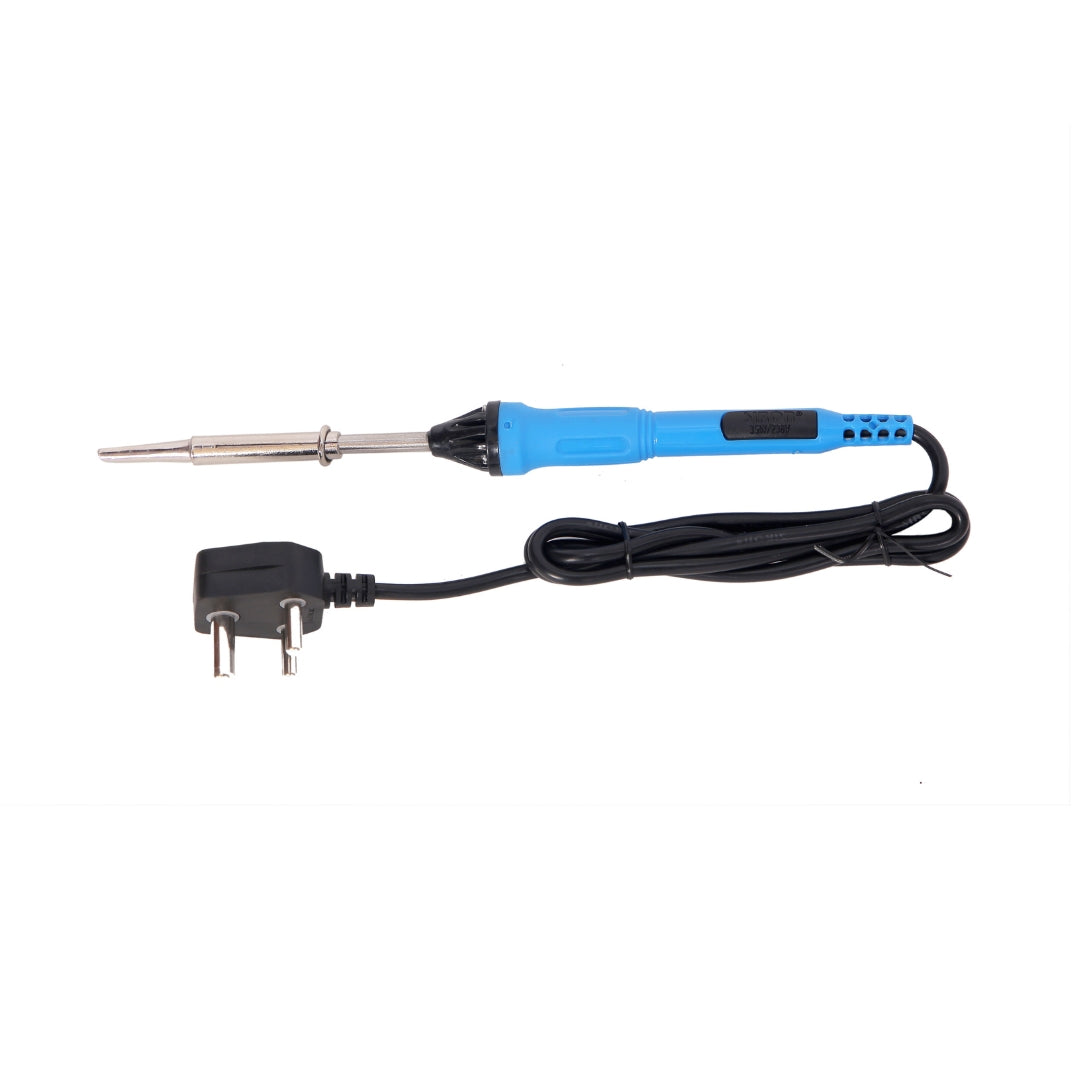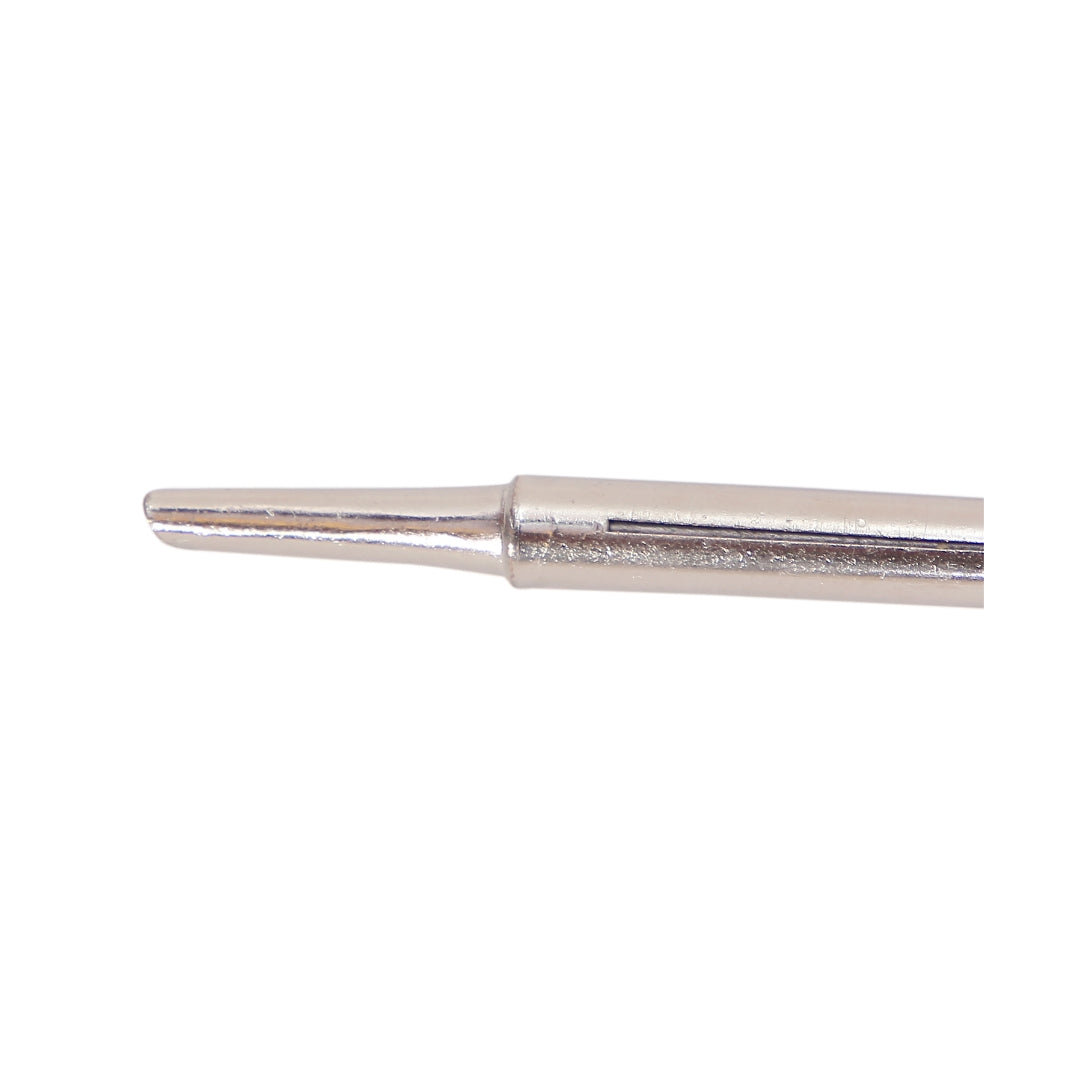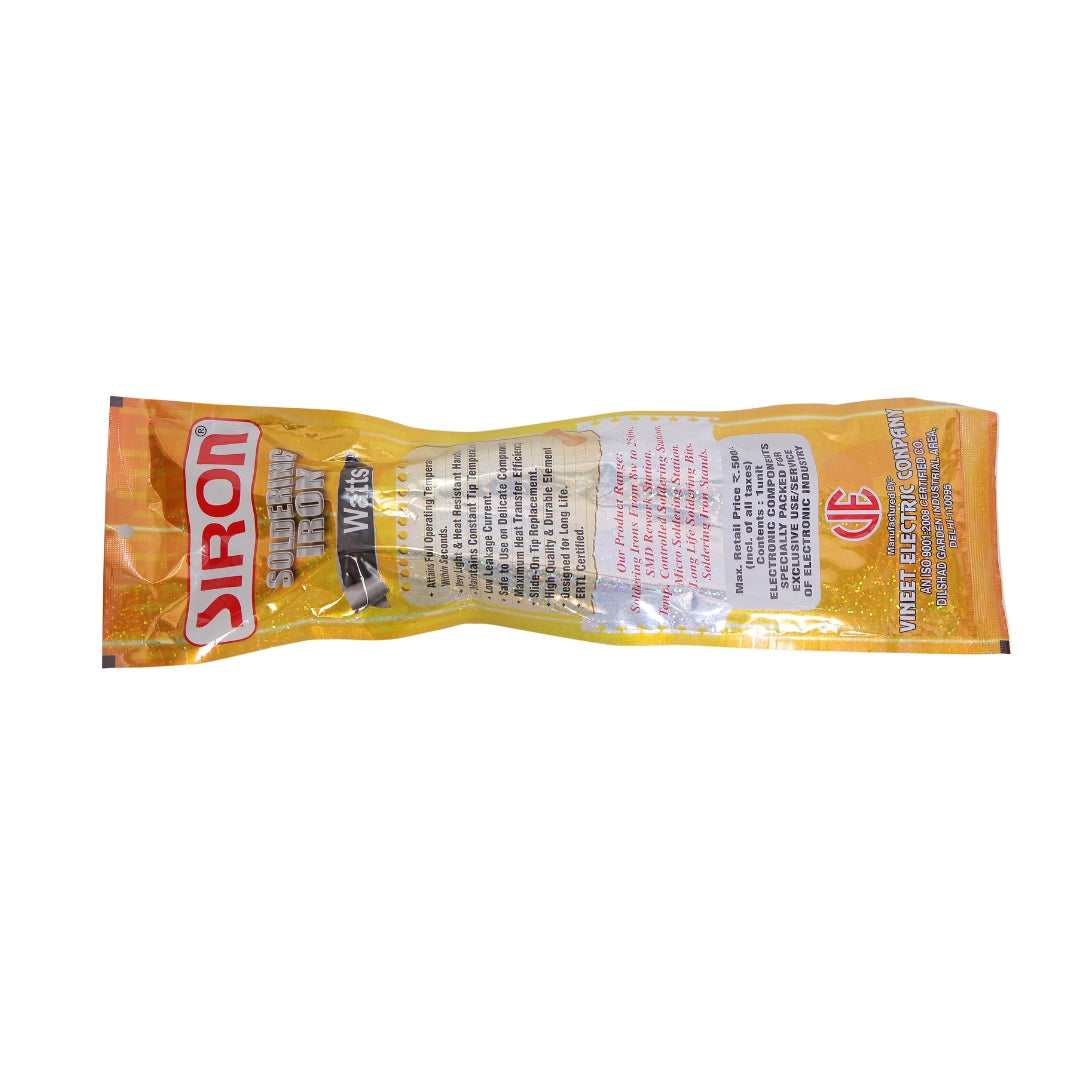1
/
of
3
SIRON 35W Soldering Iron
SIRON 35W Soldering Iron
Regular price
Rs. 346.50
Regular price
Sale price
Rs. 346.50
Unit price
/
per
Taxes included.
Shipping calculated at checkout.
Couldn't load pickup availability
- Affordable Price
- Recycle
- Free Delivery
A 35-watt soldering iron is a versatile tool commonly used for electronics work, hobbyist projects, and light soldering tasks. Below is a full description of its features, uses, and considerations:
Key Features
- Power Rating: 35 watts is a moderate power level, making it suitable for delicate electronics work and light-duty soldering tasks. It provides enough heat for most small-scale soldering jobs without being overly powerful, which reduces the risk of damaging sensitive components.
- Temperature Range: Typically operates at temperatures between 300°C to 450°C (572°F to 842°F). Some models come with adjustable temperature controls, while others have a fixed temperature.
- Heating Element: Usually made of ceramic or metal, which heats up quickly and maintains a consistent temperature. The heating element is integrated into the soldering iron's tip.
- Tip Design: Comes with interchangeable tips, such as conical, chisel, or beveled tips, to suit different soldering tasks. Tips are often made of copper with iron or nickel plating for durability and heat transfer.
- Ergonomics: Lightweight and easy to handle, designed for precision work. Often features a heat-resistant handle for comfort and safety during prolonged use.
- Safety Features: Heat-resistant handle to prevent burns. Some models include a stand or holder to safely place the iron when not in use.
- Portability: Compact and lightweight, making it easy to transport and use in various locations. Often powered by a standard electrical outlet (110V or 220V, depending on the region).
Common Uses
- Electronics Repair: Ideal for soldering small components like resistors, capacitors, and ICs on printed circuit boards (PCBs).
- DIY Projects: Suitable for hobbyists working on small-scale projects, such as building or repairing gadgets.
- Jewelry Making: Can be used for soldering small metal pieces in jewelry crafting.
- Light Plumbing Work: Occasionally used for soldering small copper pipes or fittings, though higher-wattage irons are typically preferred for plumbing.
Advantages
- Precision: Provides enough heat for detailed work without overheating components.
- Ease of Use: Simple to operate, making it ideal for beginners and hobbyists.
- Affordability: Generally inexpensive compared to higher-wattage or professional-grade soldering stations.
- Quick Heating: Heats up in a few minutes, allowing for efficient work.
Maintenance Tips
- Clean the Tip Regularly: Use a damp sponge or brass wool to remove oxidation and solder residue.
- Tin the Tip: Apply a small amount of solder to the tip after each use to prevent oxidation.
- Replace Worn Tips: Over time, tips wear out and need replacement to maintain performance.
- Store Properly: Use a stand or holder to avoid accidental burns or damage to the tip.






